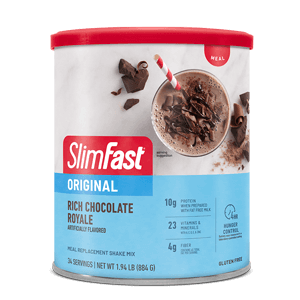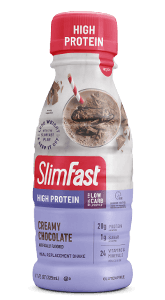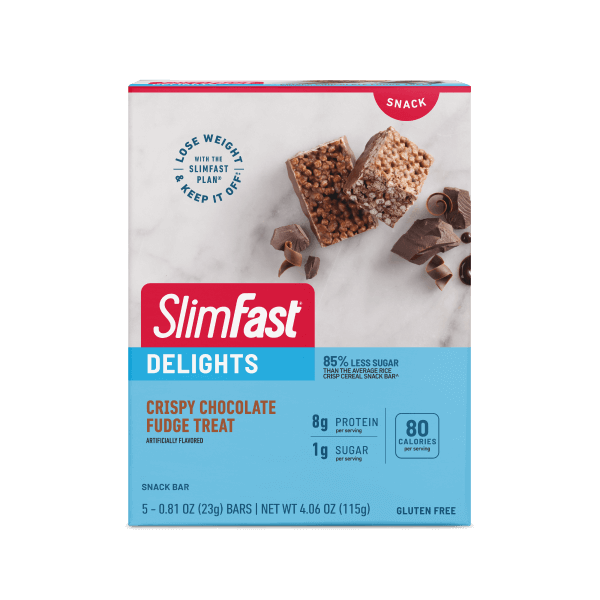While adjusting to a new eating schedule when practicing Intermittent Fasting, it may take time for your body to adapt. SlimFast Plan Consultant and Registered Dietitian, Maryann Walsh shares her tips for successfully navigating hunger while fasting on The SlimFast Plan.
One of the most notable benefits of intermittent fasting is that it can provide a major advantage for those who find themselves mindlessly eating or snacking at all hours of the day and night. Having a window of time each day where one fits in their meals and snacks helps give a “start” and “stop” time. Typically, nighttime snacking tends to be a big challenge for many on a weight loss journey, so knowing that after a certain time each day you can no longer eat, is often a powerful solution for nighttime snackers who end up consuming excess calories due to eating out of boredom.
However, what about those who genuinely experience strong hunger during their fasting window? Feelings of discomfort and physical symptoms of hunger can make it rather difficult to stick to any dietary approach, so some may find hunger during a long fasting window becomes a major obstacle to succeeding at intermittent fasting. Let’s discuss some ways in which one can manage hunger while intermittent fasting. As always, discuss with your doctor or healthcare provider before trying intermittent fasting especially if you have any health conditions such as diabetes, or have a history of eating disorders. Additionally, if you are taking any medications, it is important to discuss with your doctor before trying intermittent fasting.
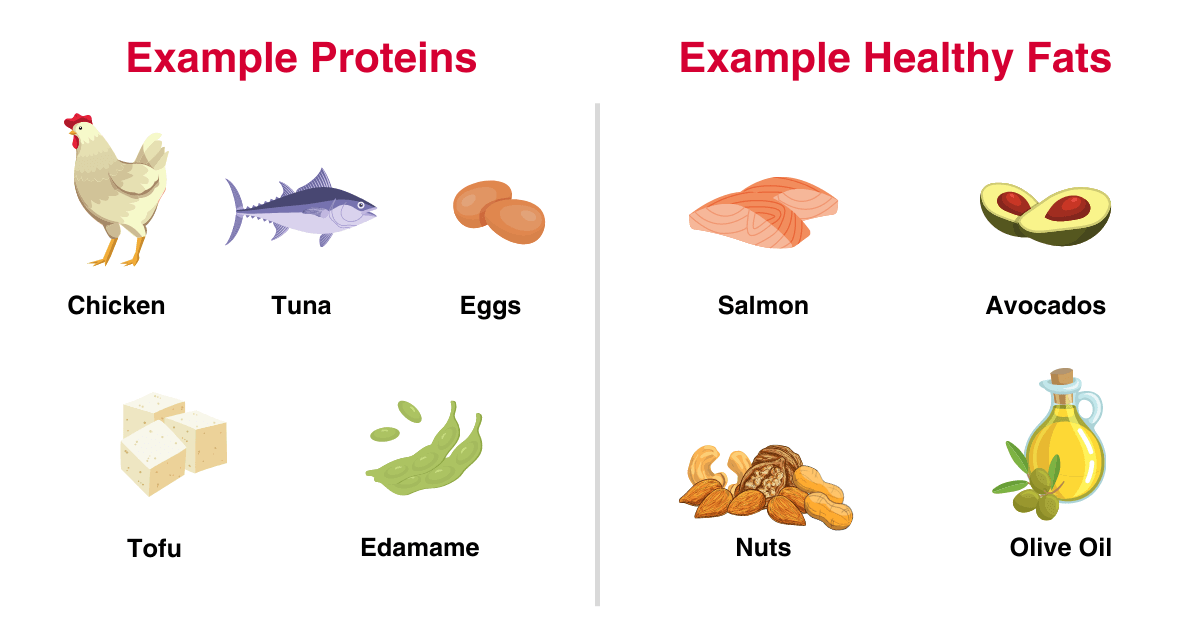
1. Prioritize Protein And Healthy Fats During Your Eating Window
While carbohydrates can have a place in a healthy and balanced diet, large servings of carbs, especially refined carbs (think white bread, pasta, and rice) can lead to blood sugar spikes and dips, which in turn can lead to excess hunger during both your eating and fasting windows1. By incorporating more protein and healthy fats into your diet either alone or paired with a small serving of whole-grain carbohydrates (think whole wheat bread, pasta, and brown rice), there is less of a likelihood of a quick blood sugar spike and crash leading to excess hunger later on2.
The principles around prioritizing protein and healthy fats mentioned above are why a ketogenic diet tends to make it a bit easier to manage hunger for those who do intermittent fasting. The low carb intake as well as the state of ketosis helps suppress appetite. It’s important to note that following a ketogenic diet is not required for those who choose to practice intermittent fasting, but again, that reduced hunger is a reason why so many choose to follow intermittent fasting and a keto diet together3.
2. Stay Hydrated
There is mixed research surrounding the idea that the body mistakes thirst for hunger, however at the very least, the full sensation that one gets from drinking fluids can certainly aid in helping one physically feel fuller longer4. Additionally, an estimated 20-30% of total water intake comes from the food we eat throughout the day, so in times of limiting food intake, we want to make sure we are staying adequately hydrated by consuming fluids during a fasting period5. Dehydration can also lead to one feeling fatigued, so during times of fasting one would want to maintain adequate hydration to sustain energy levels6. When fasting, water is an ideal beverage. However, beverages that are completely sugar-free and calorie-free (always check labels if you aren’t sure) can fit into a fast as well. Remember, we are only discussing fasting as a dietary approach, If you are ever fasting for medical reasons (such as before blood work or surgery) you may only be allowed water, and this should always be discussed with your doctor if you have any questions.
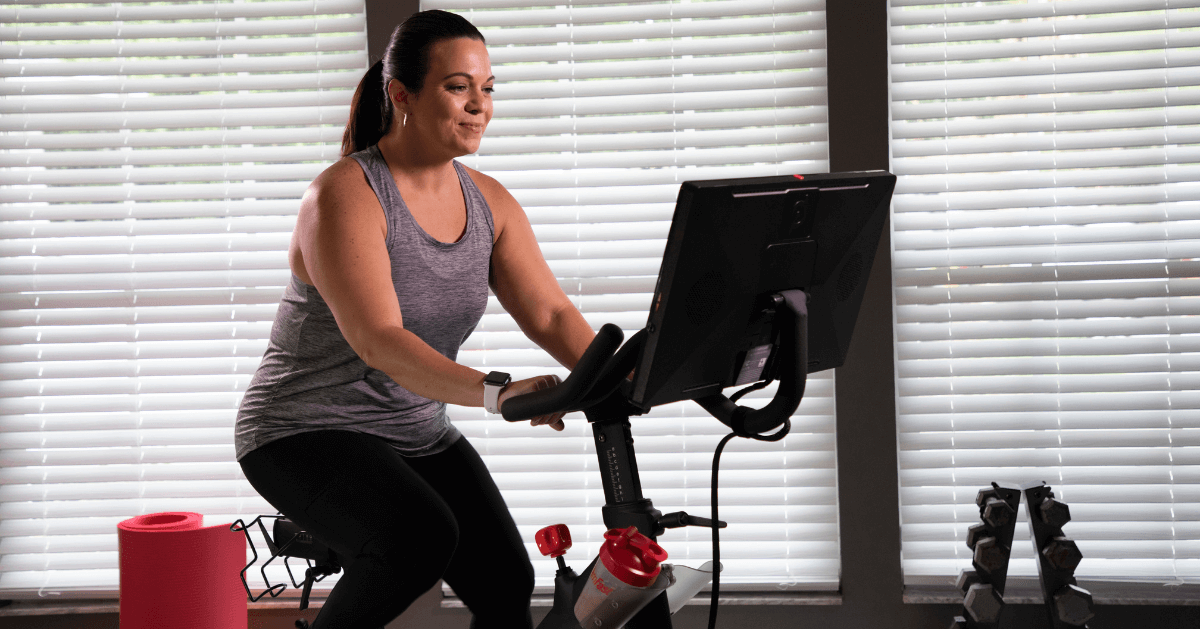
3. Practice Mindfulness
The old saying “mind over matter” may be a helpful reminder if you are someone who finds yourself hungry during your fasting window. It can be helpful to focus on your “why” when it comes to intermittent fasting. Why are you choosing to do intermittent fasting? What benefits are you hoping to experience as a result of intermittent fasting? Focusing on the reasons why you want to practice intermittent fasting can be helpful for those times when you feel like you are tempted to cave in to cravings due to boredom or stress during a fast. It can be helpful to have activities to help you stay busy as well. Working out, journaling, reading a book, or watching your favorite movie/tv show can help keep your mind occupied so you’re less focused on food cravings
4. Prioritize Sleep
We all know the importance of getting adequate sleep for our overall health and well-being, but for those who are intermittent fasting, a lack of sleep could make feelings of excess hunger even worse. Inadequate sleep has been linked to lower levels of the hormone leptin and higher levels of the hormone ghrelin. Leptin is known as the satiety hormone while ghrelin is known as the hunger hormone7.
Additionally, not getting in the often recommended 7-9 hours of sleep each evening leads to more hours of being awake during your fasting window which may make that fasting window feel even longer and difficult to stick to in the long run.

5. Setting Yourself Up For Success With Intermittent Fasting
As you can see, there are numerous strategies you can consider when it comes to managing hunger during the fasting window of your intermittent fasting regimen. Still confused as to where to even begin if you want to try intermittent fasting? You can learn more about how all of the SlimFast Plans can work with intermittent fasting by checking out this blog post and you can learn more about each of the SlimFast Plans here. Lastly, don’t forget to join one of the SlimFast Together private Facebook groups for support, tips, and advice on your weight loss journey! Please remember to see the counsel of your healthcare provider prior to starting any diet or exercise program.
RESOURCES:
- https://www.ncbi.nlm.nih.gov/pmc/articles/PMC3257742/
- https://pubmed.ncbi.nlm.nih.gov/18469287/
- https://pubmed.ncbi.nlm.nih.gov/33883420/
- https://www.ncbi.nlm.nih.gov/pmc/articles/PMC2849909/
- https://www.ncbi.nlm.nih.gov/pmc/articles/PMC5084017/
- https://www.ncbi.nlm.nih.gov/pmc/articles/PMC6224374/
- https://www.ncbi.nlm.nih.gov/pmc/articles/PMC535701/
ABOUT MARYANN
A consultant of the SlimFast Plan, Maryann is a Registered Dietitian with Bachelor of Science degrees in Biological Sciences and Dietetics and a Master of Food and Nutrition. She has extensive experience working with clients of all ages and from all walks of life, helping them to achieve their wellness and weight-loss goals. Learn more about Maryann.

